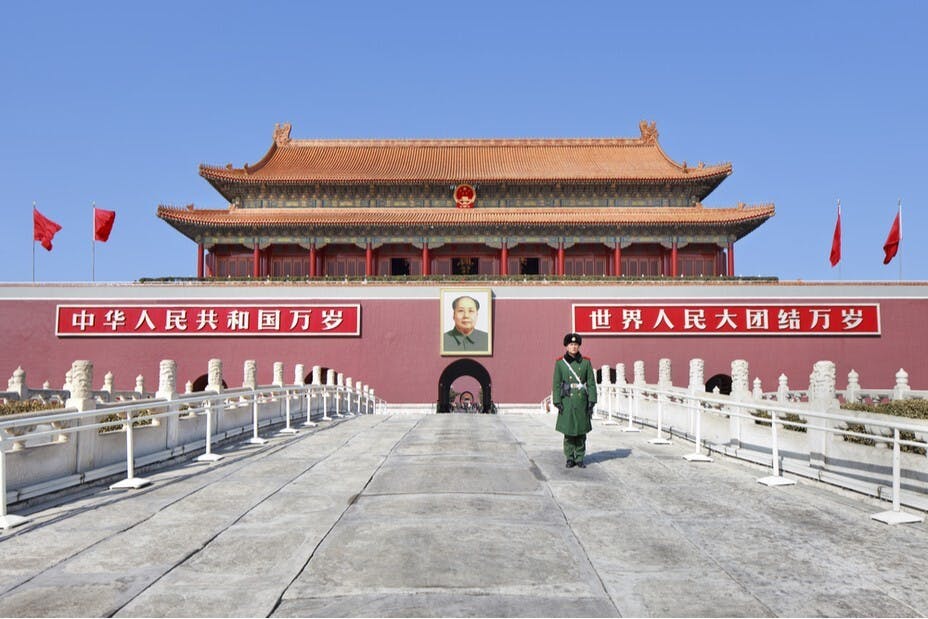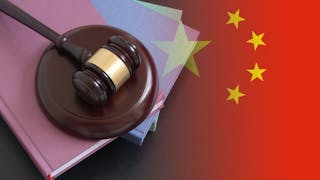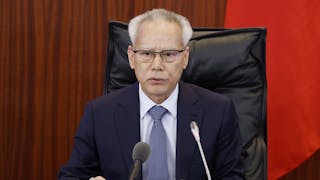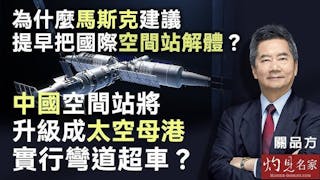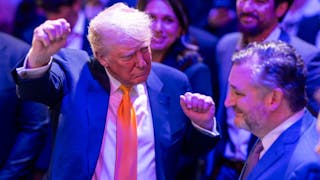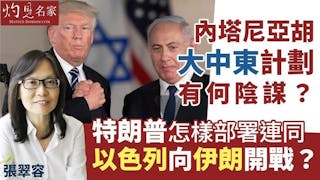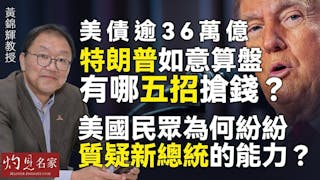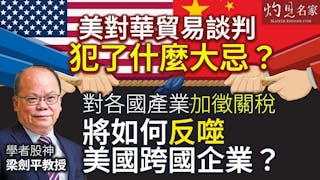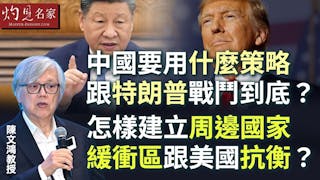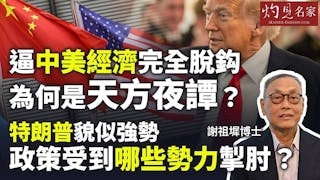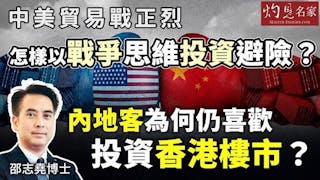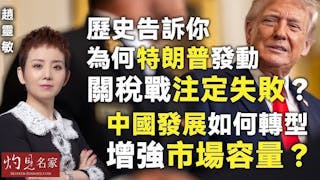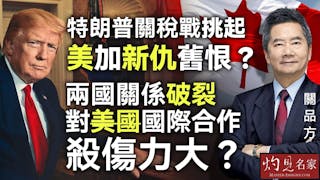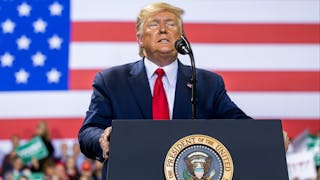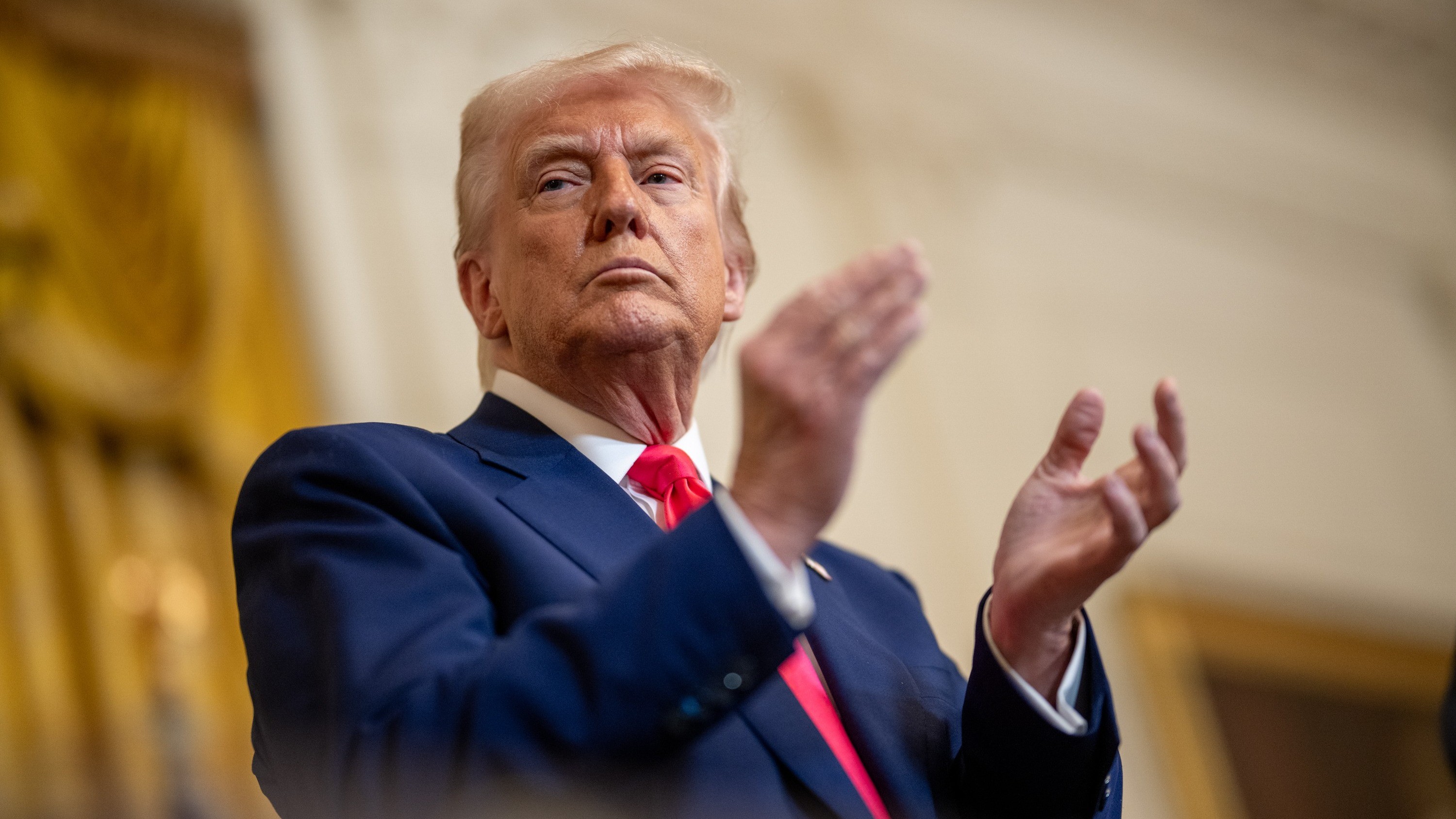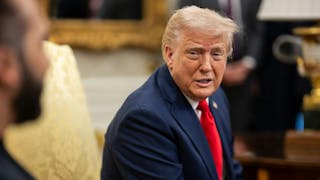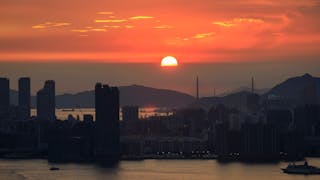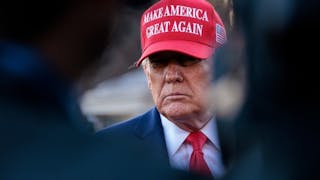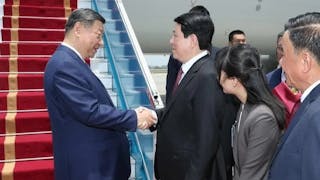為了遏制、孤立、削弱和打擊崛起中的中國,也為了說服和動員中國人民認同和支持他們的目的和行動,美國及其西方盟友不遺餘力地歪曲中國發展戰略的意圖,同時,顯然別有用心地,斷章取義地「引用」一些中國領導人和高級官員的言論,作為詆毀中國的「佐證」。
崛起的中國如何成美西方「頭號敵人」?
在美國及其西方盟國政客和專家的敘述中,中國有意取代美國和西方成為全球霸主,構建以中國為核心、其他國家則是順從和諂媚的附庸的現代版「朝貢」式國際秩序。中國還熱衷於將其「威權」政治體度、「國家資本主義」經濟制度,以及公然違反西方「普世價值」的有關信念,強加於其他國家。在美西方的話語中,如果中國成功實現其「險惡目標」,美國在亞太地區和歐亞大陸將沒有立足之地。美國在二戰後打造的「自由國際秩序」(LIO)將無以為繼。以美國為首的西方聯盟和夥伴體系將分崩離析,美國亦將無法維持其全球霸權。不僅如此,美國和其他西方國家將出現經濟、政治、社會和文化動盪、崩潰和倒退的悲劇。他們的民主制度和市場經濟將崩潰。為此,美國及其盟國必須將中國視為頭號敵人,團結一致,積極與其他志同道合的國家結盟,以終結或遏制中國的崛起。
儘管西方歪曲事實,但從常識、理性和同理心的角度來看,中國的戰略意圖和行動是很容易理解的。 200年來,中華民族飽受西方帝國主義、全球殖民主義、日本軍國主義、以及美國和西方霸權主義的殘酷壓迫。考慮到中國的歷史文化背景、國情和當前面臨的嚴峻的國內外形勢,中國大多數政治家和知識分子所倡導的發展道路,都高度重視強大的政治力量,能夠動員和團結絕大多數中國人民,因為只有在強大的政治力量領導下,中國才能恢復民族獨立,維護國家主權和領土完整,實現繁榮富強。然而,新中國成立前,中國缺乏強大的政治力量,錯誤地走上了不符合中國需要和國情的發展道路。新中國成立後,中國終於走上了「中國特色社會主義」的成功道路。
「中國特色社會主義」其他國家無法複制
「中國特色社會主義」的核心是中國共產黨的堅強、統一和全面領導,政府不僅在經濟社會發展中發揮主導作用,而且通過計劃經濟和市場經濟相結合,實現經濟增長、技術進步、社會正義和改善人民生活。「中國特色社會主義」的道路是獨特的,深刻體現了中國的歷史文化底蘊,在其他國家是不可能複制的,中國絕對無意將自己的發展模式強加於其他國家。
事實上,在美國等西方國家的崛起過程中,直到今天,國家而不是市場一直扮演着重要的角色。觀乎鼓吹「自由市場」的美國歷史,聯邦政府在促進經濟發展中的角色一直很突出。美國及其盟友批評中國不允許市場發揮主導作用,只讓人覺得偽善和傲慢。
中國從未打算破壞「自由國際秩序」
事實上,今天許多「自由國際秩序」國家的政府都積極介入經濟領域,但卻因為它們與美西方友好或是美國的拉攏的對象而沒有受到詬病。最諷刺的是,中國在被西方「允許」進入「自由國際秩序」的時候,就已經是社會主義國家了。然而,現在許多美國人假裝「失望」,認為政府在中國經濟中的作用「仍然」佔主導地位。因為中國不走西方發展模式也能創造經濟奇蹟,自然對美西方構成巨大挑戰,美西方也難免感到芒刺在背。
在建設富強中國的進程中,中國共產黨必須要審時度勢,因應國際和國内環境的不斷變遷來調整中國的發展戰略。正在舉行的中共二十大自然引起了全球的關注。
新中國成立後的一段時間,在西方的圍堵和後來蘇聯單方面終止援助的情況下,中國不得不走「自力更生」的道路。然而,隨着1970年代國際形勢的變化,中國有機會推行「改革開放」戰略。中國通過積極參與美國主導的「自由國際秩序」而迅速崛起。當然,中國的加入也給西方帶來了豐厚的回報。但是,隨着中國等主要發展中國家的崛起,加上美國不負責任的態度和損人利己的行為,特別是強迫其他國家採納西方式「民主」制度,其不公平、不民主、不民主和不足之處日益浮現,已經令「自由國際秩序」到了不得不改革的地步。近年來,愈來愈多的西方專家學者也開始意識這個困擾「自由國際秩序」的問題。
今日,中國仍然是「自由國際秩序」 的受益者,從未打算將之推翻或破壞。然而,中國和其他崛起中的發展中國家自然會希望改革國際秩序,讓所有國家都得到公平公正的對待,並減少美西方國家「聲稱」擁有而經常被濫用的特權。從現在到未來,要求改革 「自由國際秩序」的呼聲只會愈來愈高。美西方國家必須尊重其他國家的主權和選擇適合自己發展道路的權利,讓採納不同發展道路的國家,在改革後的國際新秩序中與西方和平共處。
捍衛本國核心利益必要且合法
中國領導人一貫強調,即使中國已經成為一個強大的國家,中國也不會稱霸,將繼續按照「和平共處五項原則」同各國發展關係。值得注意的是,在芸芸大國當中,中國是唯一一個尚未實現國家完全統一的國家,仍然受分裂勢力及其外援的所傷害。因此,一方面,中國希望與世界各國和平共處,共同維護世界和平穩定,共同解決全球性重大問題;另一方面,中國準備在力所能及的範圍內承擔起對人類的責任。然而,美國作為全球霸主的經歷和因此而付出的沉重代價,以及給世界人民造成的過度苦難,讓崛起中的中國深有體會,高度警惕。從美國的經驗教訓來看,如果中國成為全球霸主,無論它秉持什麼樣的意識形態,都不可避免地會像美國一樣捲入無休止的戰爭和衝突中,無休止地消耗國家的資源。試圖向世界提供大量的公共產品和人民幣,將面臨不可克服的困難。它還會招致其他國家的不停的鄙視,並會在內部製造矛盾。對中國來說,一個以多邊主義為準則的多極化、多元化的世界,符合中國的最大利益,也更有利於世界的和平與進步。
每個主權國家都有自己的核心利益,中國也不例外。中國長期以來都公開宣稱自己的核心利益在哪裏。其中,國家主權、國家安全、發展利益是總體核心利益,台灣和南海是當前主要的具體核心利益。中國一再強調將堅決捍衛自己的核心利益,跟西方的指摘相反,中國沒有擴張領土的野心。
儘管中國是最大的貿易國,但人民幣離成為國際貨幣還很遙遠。因此,中國的金融利益和穩定一再受到美元霸權的破壞和威脅。隨着中國與各國經貿關係日益密切,人員往來更加頻繁,中國的利益已遍布全球,需要通過更廣泛的外交和更強的軍事力量加以保護。我們自然看到,中國一方面堅定致力於與世界各國和平友好共處,願意為世界和平作出努力和貢獻,同時也決心不惜一切代價維護其核心利益和其他實際利益,特別是實現國家的完全統一。毫不奇怪,中國大力捍衛自己的核心利益,以及行動起來反對外部勢力入侵和侵蝕核心利益,包括加強軍事實力,與更多國家發展友好合作關係,促進區域經濟合作,加快人民幣國際化進程。隨着美國及其盟國繼續在各個領域對中國進行全面遏制和打擊,這些活動變得愈來愈有必要且合法。
在美西方的誤判下,中國成爲了美西方難以和平共存的「頭號敵人」、必欲除之而後快。這種做法不僅嚴重損害了相互關係,也破壞了國際秩序和世界和平的穩定,使許多突出的全球性問題無法得到妥善處理。直到美西方明白,受西方列強欺凌200年的中國人民的首要目標是成為一個絕對能夠「屹立於世界民族之林」的富強國家,並願與包括美西方在內的所有國家和平共處、公平競爭、共同進步。只有美國及其西方盟國對華的敵意不再持續存在,世界的長治久安與發展才能得到保障。
Development strategy should not be distorted
To contain, isolate, weaken and combat the rising China, and to persuade and mobilize their people to identify with and support their goals and actions, the United States and its Western allies have spared no effort to distort the intentions of China’s development strategy, and, evidently with ulterior motives, “quoted” out of context the statements of the Chinese leaders and senior officials to “prove” their allegations.
In the narratives of the politicians and experts in the US and its Western allies, China is deliberately trying to replace the US and the West as the global hegemon and build a modern version of the “tributary” international order, with China as the core and other countries as compliant and sycophantic vassals. China is also keen to impose on other countries its “authoritarian” political system, “state capitalist” economic system, and the associated beliefs that blatantly violate the “universal values” espoused by the West. In the US-Western discourse, if China succeeds in achieving its “sinister goals”, the US will have no place in the Asia-Pacific region and Eurasia. The “liberal international order” (LIO) crafted by the US after World War II will no longer be sustainable. The system of alliances and partnerships led by the US will fall apart. The US hence will not be able to maintain its global hegemony. Not only that — the US and other Western countries will experience the tragedy of economic, political, social and cultural upheaval, collapse and retrogression. And their democratic institutions and market economies will implode. For these reasons, the US and its allies must regard China as their No 1 enemy, unite as one, and actively form alliances with other like-minded countries to end or stall China’s rise.
Notwithstanding Western distortions, China’s strategic intentions and actions can be understood easily from the perspective of common sense, rationality and empathy. Over the past 200 years, the Chinese nation has been brutally oppressed by Western imperialism, global colonialism and Japanese militarism, as well as US and Western hegemonism. After taking into account China’s historical and cultural background, its actual conditions and the severe situation at home and abroad that China has been encountering, all the development paths advocated by most Chinese politicians and intellectuals set great store on the indispensability of a strong political force that can mobilize and unite the vast majority of Chinese people, because only under the leadership of this strong political force can China restore national independence, safeguard its sovereignty and territorial integrity, and achieve prosperity and strength. Before the founding of the People’s Republic of China, however, China lacked that strong political force and had erroneously adopted development paths that were not compatible with China’s needs and conditions. After the founding of the PRC, China finally embarked on the successful path of “socialism with Chinese characteristics” (SWCC). At the core of SWCC is the strong, unified and comprehensive leadership of the Communist Party of China, with the State not only playing a leading role in economic and social development but also using planning and marketing concomitantly to achieve economic growth, technological progress, social justice and improvement of people’s lives. The path of SWCC is unique and deeply embodies China’s historical and cultural heritage, so it is impossible to replicate in other countries, and China has absolutely no intention to impose its development model on other countries.
As a matter of fact, in the rise of the US and other Western countries, and even today, the state, rather than the market, has always played a major role. In the history of the US, which used to trumpet the “free market”, the role of the federal government in promoting economic development has always been prominent. The criticism of the US and its allies that China does not allow the market to play the leading role smacks of hypocrisy and arrogance.
Today, states in many countries in the LIO are actively involved in the economic domain, but they are not denounced because of their strategic importance to the US or because they are the objects of its solicitation. What is most ironic is that China was already a socialist country when it was “allowed” by the West to enter the LIO. Now, however, many Americans are feigning “disappointment” that the role of the State in the Chinese economy is “still” preponderant. Because China can still achieve economic miracles without following the Western development model, it naturally poses a huge challenge to the West, and China inevitably becomes its bugbear.
In the process of building a prosperous and strong China, the CPC must constantly adjust its development strategy in response to the ever-changing international and domestic environment. It’s natural that the ongoing 20th CPC National Congress has drawn global attention.
For some time after the founding of the PRC, under the encirclement and blockade of the West, and the later unilateral termination of aid by the Soviet Union, China had no alternative but to take the road of “self-reliance”. However, with the changes in the international situation in the 1970s, China could pursue the “reform and opening-up” strategy. China rises breathtakingly by actively participating in the LIO dominated by the US. It goes without saying that China’s accession has also brought rich returns to the West. However, with the rise of China and other major developing countries, coupled with the irresponsible aberrant and delinquent behavior of the US, particularly in forcing other countries to adopt Western-styled “democracy”, the unfairness, nondemocratic nature, limited inclusiveness and inadequacies of the LIO have become all too transparent. It now has reached the point where its reform cannot be further delayed. In recent years, more and more Western experts and scholars have also become aware of the problems plaguing this LIO.
To this day, China remains a beneficiary of that LIO and has never intended to overthrow or undermine it. However, China and other developing countries on the rise will naturally want the international order to be reformed so that all countries are treated fairly and justly, and that the multitude of often-abused privileges “claimed” by the US and the West should be curtailed. Now and in the future, calls for reform of the LIO will only grow louder. The US and the West must respect the sovereignty of other countries and their right to choose the paths suitable for their development, and allow countries that adopt different development paths to peacefully coexist with the West in a new and reformed international order.
Chinese leaders have always stressed that even if China becomes a powerful country, China will not seek hegemony and will continue to develop relations with other countries by the “Five Principles of Peaceful Coexistence.” It’s noteworthy that among the great powers today, China is the only one that has not yet achieved complete national unification and is still the victim of the separatist forces and their foreign patrons. Consequently, on the one hand, China hopes to coexist peacefully with other countries in the world, work together with them to safeguard world peace and stability, and tackle major global problems; on the other hand, China is prepared to shoulder its responsibilities to mankind within its capabilities. However, the experience of the US as a global hegemon, the heavy price it has paid and the inordinate suffering it has inflicted on people around the world have made a rising China highly cautious and deeply vigilant. Given the experience and lessons of the US, if China becomes a global hegemon, no matter what ideology it upholds, it will inevitably be involved in endless wars and conflicts as the US is, which will endlessly deplete the resources of the country. It will face insuperable difficulty in trying to supply large amounts of public goods and renminbi to the world. It will also incur endless disdain from other nations and create contradictions within itself. For China, a multipolar and pluralistic world in which multilateralism is the norm is in its best interests and is also more conducive to world peace and progress.
Every sovereign state has its core interests, and China is no exception. China has long openly declared where its core interests lie. Among them, national sovereignty, security and development interests are general core interests, while Taiwan and the South China Sea are the specific core interests that are currently preponderant. China has repeatedly stressed that it will resolutely defend its core interests, Contrary to the accusations of the West, China has no ambition for territorial aggrandizement.
The renminbi is still far away from being an international currency of the world despite China being its largest trading nation. As a result, China’s financial interests and stability have been repeatedly undermined and threatened by the hegemony of the US dollar. As China’s economic and trade relations with other countries become closer, and personnel exchanges more frequent, China’s interests have spread all over the world and need to be protected through greater diplomatic and military capabilities. Naturally, we are seeing that on the one hand, China is firmly committed to peaceful and friendly coexistence with all countries in the world and is willing to make efforts and contributions to world peace, but at the same time, it is also determined to safeguard its core interests and advance other practical interests at all costs, especially to achieve the complete reunification of the country. Not surprisingly, China vigorously defends its core interests and actions against invasion and encroachment by external forces, including strengthening its military power, developing friendly and cooperative relations with more countries, promoting regional economic cooperation, and accelerating the internationalization of the renminbi. These activities have become ever more necessary and legitimate as the US and its allies continue to carry out comprehensive containment and strikes against China in all areas.
Under the misjudgments of the US and the West, China has become the “No 1 enemy” that they cannot coexist with and hence must be contained and defeated in no time. This approach has not only seriously damaged mutual relations but has also destabilized the international order and world peace and made it impossible for many salient global problems to be properly handled. Until the US and the West understand that the primary goal of the Chinese people, who have been bullied by the Western powers for 200 years, is to become a rich and powerful nation that can definitely “stand firm among the nations of the world”, and is prepared to coexist peacefully, compete fairly, and progress together with all other countries, including the US and the West, the US and its Western allies’ antagonism toward China will persist. Only when this is no longer the case can long-term peace and development in the world be secured.



